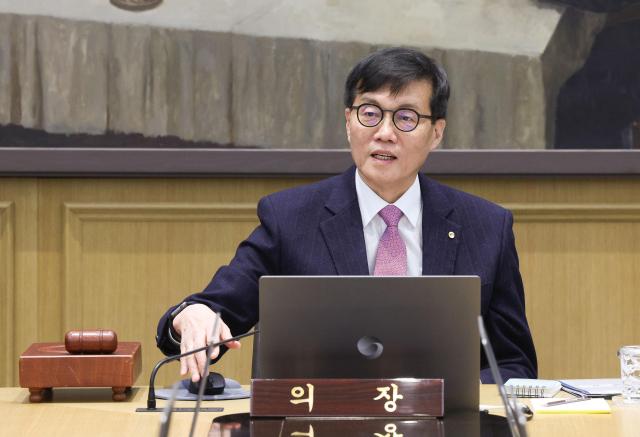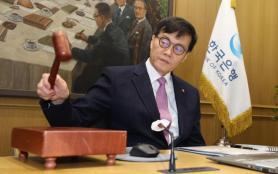
The Bank of Korea’s monetary policy board paused its rate-cutting cycle, raising fears that additional reductions could push the currency past the critical 1,500 threshold against dollar, risking inflationary pressures and destabilizing foreign capital flows.
The central bank had slashed rates twice by 0.25 percentage points in October and November, its first consecutive cuts since the global financial crisis in late 2000s, as South Korea's economic outlook deteriorated.
However, the sharp depreciation of the won since November — driven by market expectations of higher inflation and interest rates in the United States following Donald Trump’s re-election — has complicated the bank’s position.
“The exchange rate is nearing a level that could destabilize the economy,” said a senior BOK official. “At the same time, domestic demand remains weak. Balancing these pressures will require careful monitoring of data in the coming months.”
The interest rate gap between South Korea and the U.S. now stands at 1.5 percentage points, with the Federal Reserve signaling it may trim rates only twice in 2025, a slowdown from previous projections of four cuts.
Any further reductions by the BOK could widen the differential to 1.75 percentage points, potentially triggering further currency depreciation and outflows of foreign investment.
The won’s decline has intensified pressure on import prices, threatening to stoke inflation even as the domestic economy shows signs of stagnation.
Adding to the economic challenges is a climate of political instability. Martial law declarations and impeachment proceedings against President Yoon Suk Yeol have weighed heavily on consumer sentiment and investment, complicating the government’s ability to stabilize the economy.
“The political turmoil has eroded confidence among businesses and households alike,” said Kim Sang-hoon, an economist at Seoul National University. “Even with fiscal stimulus or monetary easing, the uncertainty could dampen any recovery efforts.”
Policymakers are expected to wait for fourth-quarter growth data and details of a potential supplementary budget before deciding on their next move. The central bank is widely anticipated to revise its growth forecast of 1.9 percent for 2025 downward at its upcoming meeting.
“The BOK faces a delicate balancing act,” said Park Ji-won, an analyst at Mirae Asset Securities. “On one hand, there is pressure to support growth through rate cuts. On the other, the risk of a weaker won leading to imported inflation cannot be ignored.”
Copyright ⓒ Aju Press All rights reserved.




